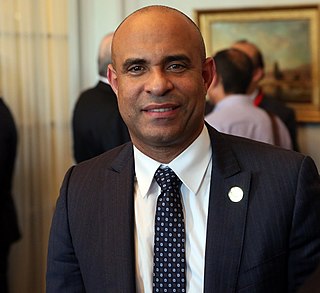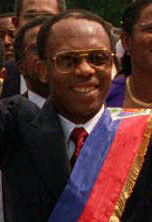A Quote by Paul Farmer
If you look just at the decades after 1934, you know it's hard to point to really inspired and positive support from outside of Haiti, to Haiti, and much easier to point to either small-minded or downright mean-spirited policies.
Related Quotes
There is this split between the Haiti of before the earthquake and the Haiti of after the earthquake. So when I'm writing anything set in Haiti now, whether fiction or nonfiction, always in the back of my mind is how people, including some of my own family members, have been affected not just by history and by the present but also by the earthquake.
To read 'Happy Talk' is to crash a party as vivid and surreal as Felini's 8. It's the business of show business, the American dream, told by a chorus of Americans locked just outside of that dream, outside of the United States, relegated to expatriate status on the shores of Haiti. Melo paints a version of Haiti that's an interior landscape perhaps even more than an externalized place. This Haiti is a plan, a memory, a morphine-drip fueled dream out to bond its inhabitants forever.
Those of you who have been there [Haiti] know it is one of the most beautiful countries in the world. It has everything. It has everything above the ground, and everything under the ground.... It is an amazing place. I strongly recommend that whenever you get a chance, if you haven't been there, that you go to Haiti. I think it was a certain Queen of England who said that after her death "Calais" would be found written on her heart. When I die, I think that "Haiti" is going to be written on my heart.
If any country was a mine-shaft canary for the reintroduction of cholera, it was Haiti - and we knew it. And in retrospect, more should have been done to prepare for cholera... which can spread like wildfire in Haiti... This was a big rebuke to all of us working in public health and health care in Haiti.
After the Dance was my first attempt at nonfiction. I'd never really participated in carnival, and I really wanted to go. It sounded like a wonderfully fun thing to do. And I wanted to write something happy about Haiti, something celebratory. And going to carnival gave me a chance to do that, because it is one of the instances in Haiti when people shed their class separation and come together.
Sometimes people who want to understand Haiti from a political perspective may be missing part of the picture. They also need to look at Haiti from a psychological perspective. Most of the elite suffer from psychogenic amnesia. That means it's not organic amnesia, such as damage caused by brain injury. It's just a matter of psychology.































